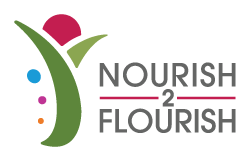Brain Boosting Nutrition
Who doesn’t want their brain to work a little faster and last a little longer? The goal for brain health is to enhance neuroplasticity. Neuroplasticity is the brain’s ability to form new connections. Neuroplasticity tends to occur less as we age so anything that boosts it will help with brain longevity. When it comes to neuroplasticity, food truly is medicine. If you occasionally suffer from brain fog, feel a little down or just want to keep your brain working at its best for as long as possible, here are some great foods to include in your diet.
Blueberries have a high amount of anthocyanins which are in the flavonoid class of polyphenols. The anthocyanins in blueberries can cross the blood brain barrier and improve memory in the hippocampus. They can also boost BDNR (Brain Derived Neurotropic Factor) , which improves neuroplasticity. The best way to eat them is fresh. Choose organic and the more tart the better. Aim for 1/2 cup per day.
Wild Salmon is a rich source of the omega-3 fats EPA and DHA, as well astaxanthin. Astaxanthin boost neurogenesis and has been been shown to upregulate genes that protect against DNA damage and aging, including the FOX03 gene, aka the longevity gene. Another bonus, it protects the skin from sun damage and protects the eyes from inflammatory damage. Add 6 oz of wild caught salmon two to three times per week.
Broccoli is a dietary source of sulforaphane, which has been shown to be beneficial to the body in many ways. It’s interesting that initially broccoli is a threat to the body with glucoraphanin but the body transforms glucoraphanin to sulforaphane via the enzyme myrosinase. Once transformed the sulforaphane helps to activate the n2f2 pathway, which protects the body from oxidative damage, particularly the nerve cells. Broccoli is one those foods that should be eaten daily, or at least one of the cruciferous vegetables (broccoli, cauliflower, Brussels sprouts, kale).
Avocado is rich in vitamin E (fat antioxidant), lutein and zeaxanthin, which has been known to help with eye health but it can also boost the brain’s processing speed. Have 1/2 avocado per day and use avocado oil for cooking as it has a high temperature smoke point.
Dark chocolate is rich in flavonols that have been shown to help with cognitive function, particularly in aging brains. Good news to chocolate lovers - go ahead and eat it on a daily basis but make sure it’s more than 70% dark.
Dark Leafy Greens are a great source of folate and magnesium, which are important for methylation, detoxification and almost 300 enzymes made by the body rely on magnesium. In addition, greens contain the sulfur-bound molecule called sulfoquinovose that feeds our good gut bacteria and inhibits growth of the bad bacteria. Your gut and brain communicate back an forth and most of your serotonin (the happy neurotransmitter) is made in the gut. Dark greens should also be part of the daily diet but don’t overdo the spinach as it’s high in oxalates. Eat a variety of greens.
Olive oil has oleocanthal, which is neuroprotective on brain cells after a traumatic brain injury (TBI) and can help clear the brain of amyloid plaque - the sticky protein that accumulates at toxic levels in Alzheimer’s disease. Use olive oil on salads and other fresh foods. It’s safe for cooking at lower temperatures but does have a lower smoke point so never use with high heat.
Good news if you are are a client of mine - your diet is very brain healthy! All of these foods add flavor and nutrients to your diet so have some today!


